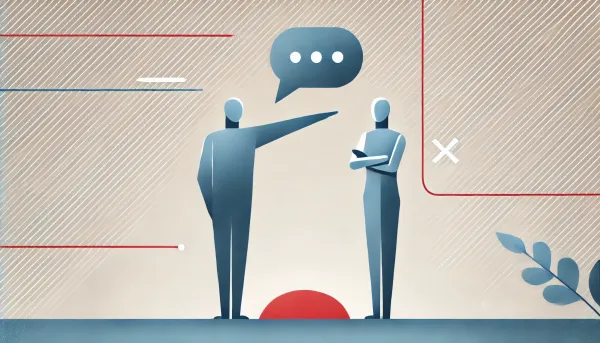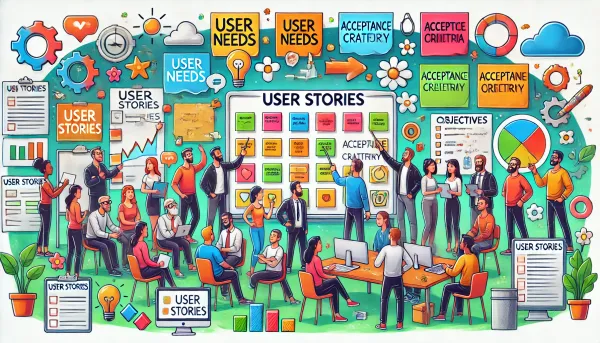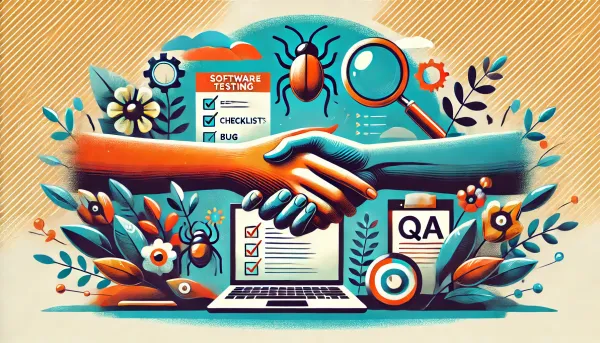How to Build a Culture of Knowledge Sharing.
'd like to introduce a topic related to sharing knowledge within your team and building a small community within your ranks.

This time, I'd like to introduce a topic related to sharing knowledge within your team and building a small community within your ranks. The initiative I'll be talking about could, in my opinion, have a significant impact on organizational culture within developer teams. Tentatively, I call it just presentations, but surely, we could produce a more engaging name.
What Awaits You.
- ✅ Outline of the idea of sharing knowledge through presentations.
- ✅ General tips on how to prepare.
- ✅ Example topics.
- ✅ How you can benefit.
- ✅ Helpful materials.
What Is This All About?
It's all about fostering development and encouraging the team to engage in discussions through sharing knowledge via short presentations on various topics.
In the IT world, gathering knowledge and then sharing it is something completely normal. We see it every day. We have access to countless blogs, conferences, and free tech talks. People in IT thrive on passing knowledge around, and everyone knows it's worth doing.
There is a good chance that your team already has some initiative like this, and a slightly smaller chance that you are not actively participating. If that's the case, the goal of this article will be to convince you to change that. 😎
How Does It Look in Practice?
You pick a topic and present it to the team. In a sense, it is a type of training where you share your knowledge. The place? Practically anywhere, though I recommend that the meeting takes place in the office. This way, you have a much better chance of receiving real-time feedback on your presentation, seeing people's reactions, and stimulating discussion more effectively.
However, I do understand the reality we live in. Today, most of us work remotely, so if we can't have what we like, we like what we have—a remotely conducted knowledge sharing session will also do the job.
Regardless of the format, the result will be the same—you gain respect, improve your presentation skills, and by preparing for the meeting, you deepen your knowledge on the topic you are going to present. In turn, this strengthens your position within the team.
👉 It's all positive!
What Can You Present?
Basically, any topic related to your team's everyday work.
Topics related to technology, such as the programming language or framework your team is using, are perfect. You can freely talk about new features in upcoming versions, tips, or best practices that recently caught your attention.
Special attention should be given to problem solutions within your project. This is the perfect opportunity to show off how you solved a difficult, interesting problem while implementing the latest functionality.
This is one of those things that can be incredibly valuable to your teammates—there's a chance you solved something that has been bugging your colleagues.
You can also show your unconventional approach to implementing a piece of code.
It doesn't have to be a topic worthy of a Nobel Prize.
It doesn't have to be an incredibly polished piece of code—quite the opposite. You could just as well show off two or three lines of code. If you're proud of what you've created, it's a good candidate for a presentation.
The point here is to encourage knowledge sharing, so don't focus on finding topics that would be good enough for a TEDx talk.
Frequency and Length of Meetings. Do You Need a Board?
Having a place to list planned topics definitely helps. As I mentioned with dev meetings (link below), it's useful to have an accessible board (like Trello or a spreadsheet) where volunteers can put down the topics they'd like to present next. This makes it easier to manage the initiative and the knowledge-sharing process.
Over time, you'll build up an archive of topics, which can be highly motivating when you see how much knowledge has been shared.

One session a month.
There's no need to make these meetings too frequent. I think one session per month is sufficient, especially at the start. Too high a frequency might be hard to maintain, as you might run into issues planning topics, which could lead to meetings being postponed and, eventually, the cancellation of the whole initiative.
Over time, of course, you can adjust the frequency depending on how many topics come up and how satisfied the team is.
It shouldn't be a long session—I'd suggest starting with meetings that last 45-60 minutes. That's plenty of time to present two or three topics while keeping the session dynamic.
How Can You Benefit from Sharing Knowledge?
As a promoter of this kind of initiative, you increase your position as someone open to sharing knowledge. The more often you are visible in team activities, the stronger this position becomes.
Notice that every time you need to present a topic, you have to prepare for it. There's a good chance you'll notice something new, come up with an additional solution, or improve an existing one. This is simply the natural outcome of working on a topic more intensively.
During your presentation, people will ask questions or bring up ideas that may lead to new actions, improvements, or even reveal that the problem you solved has already been addressed by someone else. Well, that's how it goes sometimes. 🤷♂️
The examples
To inspire you, I've listed a few example topics that you could prepare for such a meeting:
- A problem you recently solved in the project.
- New features in the latest version of a framework or programming language you use.
- Good programming practices you came across while browsing the internet.
- A short review or summary of a book that could be valuable for others.
- A proposed solution to a problem bothering the team, possibly even with a prepared proof of concept (PoC).
- Presenting an interesting discussion from one of the recent code reviews.
- Introduction to a library that could be useful for your project, explaining its basic workings.
- An overview of an important industry event, e.g., a summary of a conference by a major tech company.
Presentation Skills
Presentation skills are important for your growth. They are not only useful for industry conferences—armed with the right presentation skills, you will make your everyday work easier, both in your team and in the IT industry in general.
Think about it...
Clients
At work, we often meet with clients, and we sometimes need to present the results of our work to them. Every client is different. If you know how to understand their needs better and how to present the outcomes effectively, you'll earn their favor. It would be great to know how to do that in a deliberate way.
Recruitment
Occasionally, we change jobs. During recruitment, your ability to present yourself clearly and effectively can make a huge difference, increasing your chances of success.
Project Daily Life
Presentation skills are also handy during sprint reviews or demo sessions for clients. They can improve your confidence during various meetings: daily standups, dev meetings, or the very topic of today—technical presentations for the team.
Being more aware of how to present will also help you work on overcoming the curse of knowledge. This phenomenon occurs when we can't properly explain our thoughts because certain things seem obvious to us, but not necessarily to others.
As you can see, there are a lot of benefits from working on your presentation skills. There are certainly even more, but I hope the ones mentioned have convinced you to start learning.
Thanks
~KB




